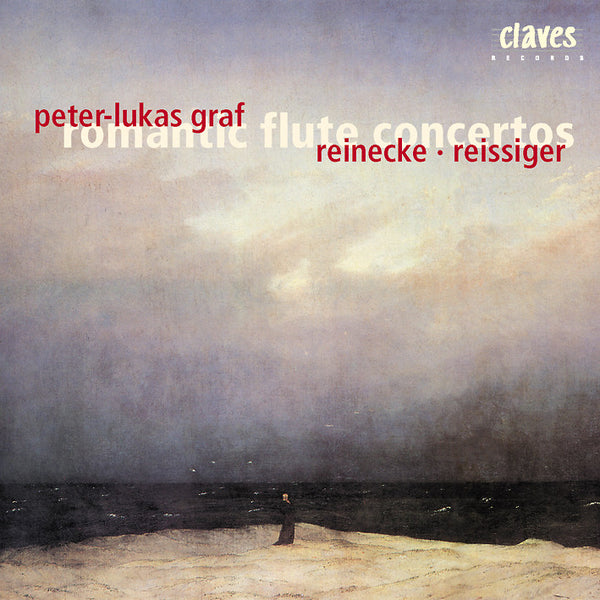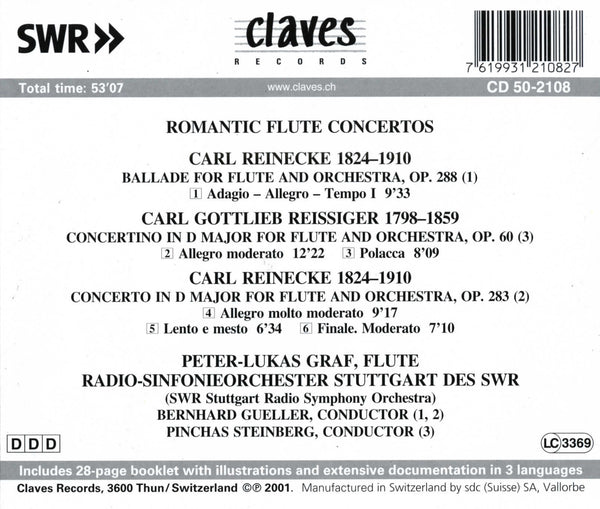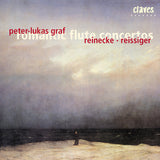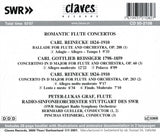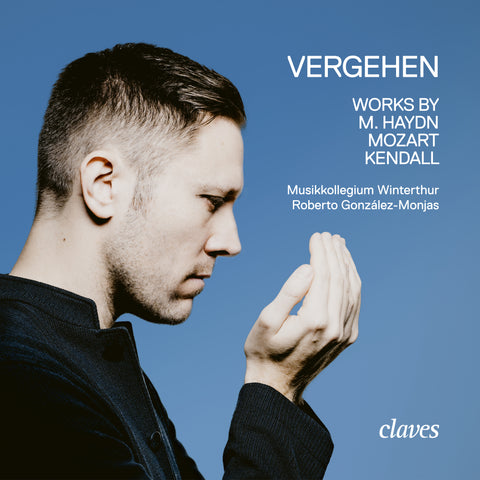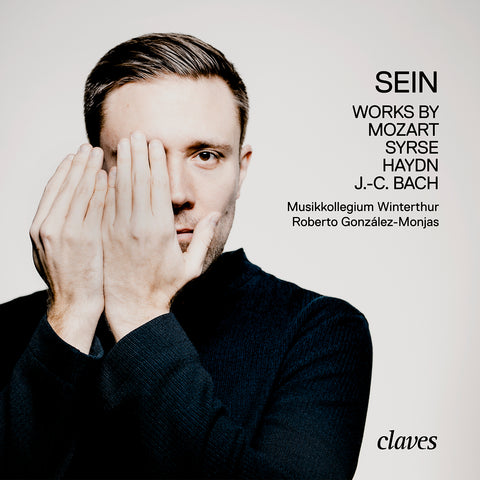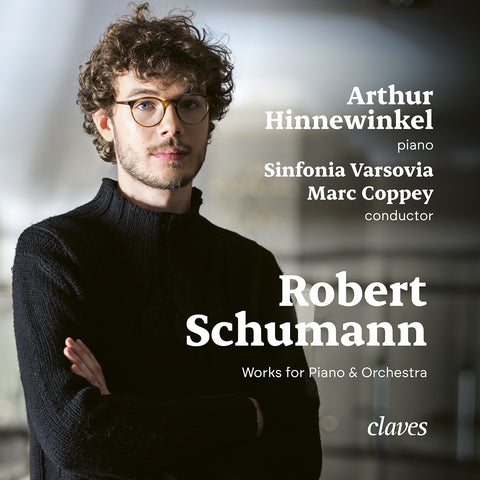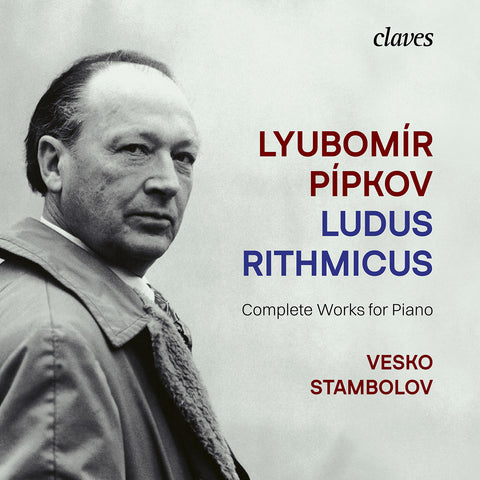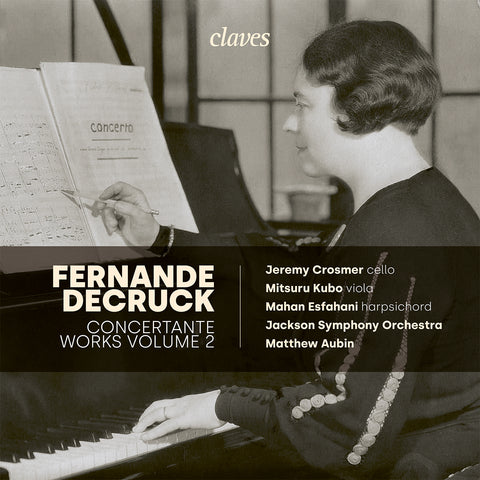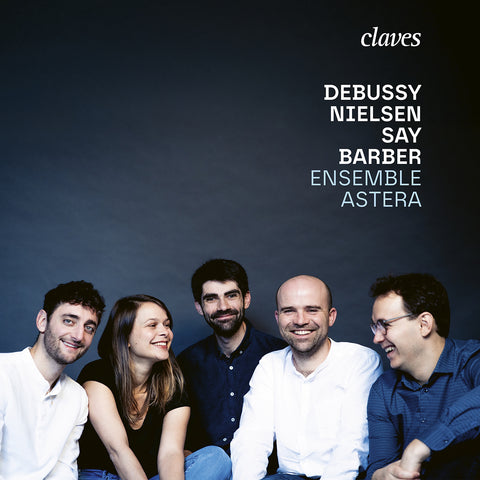(2001) Romantic Flute Concertos
Category(ies): Concerto
Instrument(s): Flute
Main Composer: Carl Reinecke
CD set: 1
Catalog N°:
CD 2108
Release: 2001
EAN/UPC: 7619931210827
- UPC: 829410506663
This album is now on repressing. Pre-order it at a special price now.
CHF 18.50
This album is no longer available on CD.
This album has not been released yet. Pre-order it from now.
CHF 18.50
This album is no longer available on CD.
CHF 18.50
VAT included for Switzerland & UE
Free shipping
This album is no longer available on CD.
VAT included for Switzerland & UE
Free shipping
This album is now on repressing. Pre-order it at a special price now.
CHF 18.50
This album is no longer available on CD.
This album has not been released yet.
Pre-order it at a special price now.
CHF 18.50
This album is no longer available on CD.
CHF 18.50
This album is no longer available on CD.
ROMANTIC FLUTE CONCERTOS
The 19th century was not very productive in terms of flute music, and very few flute concertos were written during this period. Carl Gottlieb Reissiger and Carl Reinecke were the only composers of some stature to have written works for the transverse flute, without themselves being flautists.
Carl Gottlieb Reissiger was born in Belzig in 1798 and came to Leipzig in 1811 to attend the Thomasschule. He continued his studies in Vienna with Salieri and in Munich with von Winter. It was in Munich that he composed his only Italian opera, "Didone abbandonata", which was premiered by Carl Maria von Weber in Dresden in 1824. After Weber's death, Reissiger became director of music at the court opera house and was appointed royal Kapellmeister for life.
In addition, he composed a large number of liturgical pieces, lieder, a symphony, chamber music and piano pieces. Reissiger remained a highly respected figure in Dresden until his death. The Concertino for flute and orchestra Op. 60 was written in 1829. The instrumentation is unusually rich, considering that it was intended "for small concerts"; in addition to the de rigueur strings, there are two woodwinds, horns and trumpets, cymbals and a trombone. The title "Concertino" indicates that Reissiger does not adhere to the classical concerto form, which requires a balance of forms within the three movements.
Carl Reinecke's Ballade op. 288 was his last work, composed in 1910, two years after his Flute Concerto op. 283. Reinecke's compositional style was inspired by Mendelssohn and Schumann, with whom he was personally very familiar. In the harmony of his flute concerto, the influence of Brahms can be heard in certain passages, and Reinecke remains faithful to the spirit of this composer in his conception of the symphony. The Ballade is a concert piece in a single movement. A Scherzo, reminiscent of the music in Mendelssohn's "A Midsummer Night's Dream", is set off by two adagio sections of romantic, poetic expression.
Peter-Lukas Graf is accompanied on this 1983/84 SWR archive recording by the Stuttgart Radio Symphony Orchestra, conducted by Bernhard Güller and Pinchas Steinberg.
Translated from French by www.DeepL.com/Translator (free version)
The 19th century was not very productive in terms of flute music, and very few flute concertos were written during this period. Carl Gottlieb Reissiger and Carl Reinecke were the only composers of some stature to have written works for the transverse flute, without themselves being flautists.
Carl Gottlieb Reissiger was born in Belzig in 1798 and came to Leipzig in 1811 to attend the Thomasschule. He continued his studies in Vienna with Salieri and in Munich with von Winter. It was in Munich that he composed his only Italian opera, "Didone abbandonata", which was premiered by Carl Maria von Weber in Dresden in 1824. After Weber's death, Reissiger became director of music at the court opera house and was appointed royal Kapellmeister for life.
In addition, he composed a large number of liturgical pieces, lieder, a symphony, chamber music and piano pieces. Reissiger remained a highly respected figure in Dresden until his death. The Concertino for flute and orchestra Op. 60 was written in 1829. The instrumentation is unusually rich, considering that it was intended "for small concerts"; in addition to the de rigueur strings, there are two woodwinds, horns and trumpets, cymbals and a trombone. The title "Concertino" indicates that Reissiger does not adhere to the classical concerto form, which requires a balance of forms within the three movements.
Carl Reinecke's Ballade op. 288 was his last work, composed in 1910, two years after his Flute Concerto op. 283. Reinecke's compositional style was inspired by Mendelssohn and Schumann, with whom he was personally very familiar. In the harmony of his flute concerto, the influence of Brahms can be heard in certain passages, and Reinecke remains faithful to the spirit of this composer in his conception of the symphony. The Ballade is a concert piece in a single movement. A Scherzo, reminiscent of the music in Mendelssohn's "A Midsummer Night's Dream", is set off by two adagio sections of romantic, poetic expression.
Peter-Lukas Graf is accompanied on this 1983/84 SWR archive recording by the Stuttgart Radio Symphony Orchestra, conducted by Bernhard Güller and Pinchas Steinberg.
Translated from French by www.DeepL.com/Translator (free version)
Return to the album | Read the booklet | Composer(s): Carl Reinecke | Main Artist: Peter-Lukas Graf







